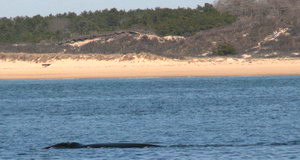Naturalist’s Notebook: September 06 – September 12
Last week, Carolyn reported a sighting of a blue shark. Blue sharks are fairly common in the nearby waters. That they are not spotted as frequently as basking sharks is likely due to the relative amount of time they spend at the surface. It is highly migratory, found in deep waters throughout the tropics and into cooler seas, it follows the Gulf Stream to Europe and then the moves south along the coast of Africa before crossing to the Caribbean. In the tropics, it is usually found in deeper, cooler waters, but in temperate seas, it comes closer to shore.
It is a large and slender shark, up to 12 feet in length. At one time, they were very abundant but, due to heavy fishing, their numbers are now greatly reduced. Shark attacks are unlikely but excited sharks have occasionally bit a diver.
They feed voraciously on schools of squid and small fish but will take advantage of a carcass. There have been several sightings of blue sharks feeding on the bodies of dead whales in the nearby waters.
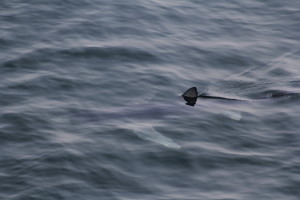
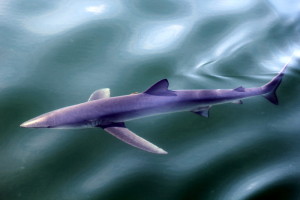
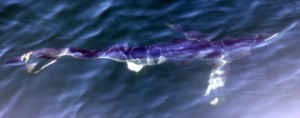
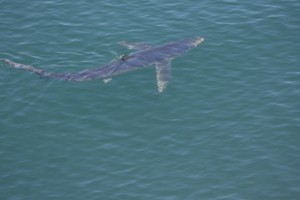
This was a week of big numbers. I have told many a whalewatcher that whalewatching is not a numbers game, but I cannot deny that a big bunch of whales is a big bunch of whales. Even when they are not doing much, it is still impressive. Especially when you remember that the populations of these animals are remnant populations that might only be 10 percent of what they were before commercial whaling.
Numbers of finbacks are still working around Race Point. Minke whales are spread out to the south and east of Race Point, as well. And large numbers of humpbacks are spread out from the triangle to southwest corner of the Bank. They were seen feeding on Sunday, Tuesday, Wednesday, Thursday, and Saturday. Surface active behaviors were reported on Sunday, Monday, Wednesday and Saturday. Dolphins were reported Sunday, Monday, and Wednesday.
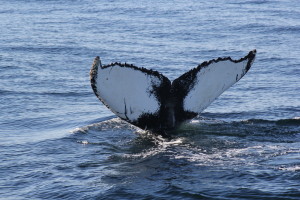
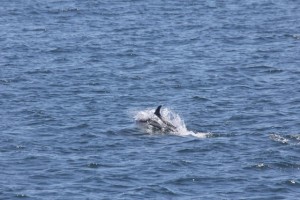
What stands out this week was the sighting on Sunday the 6th of a North Atlantic Right Whale near Peaked Hill Bars. Fairly common in the waters of Cape Cod Bay in the late winter and early spring, these animals move further north to the Bay of Fundy or further off shore to the Great South Channel for the summer months where the plankton bloom occurs later than in the Bay.